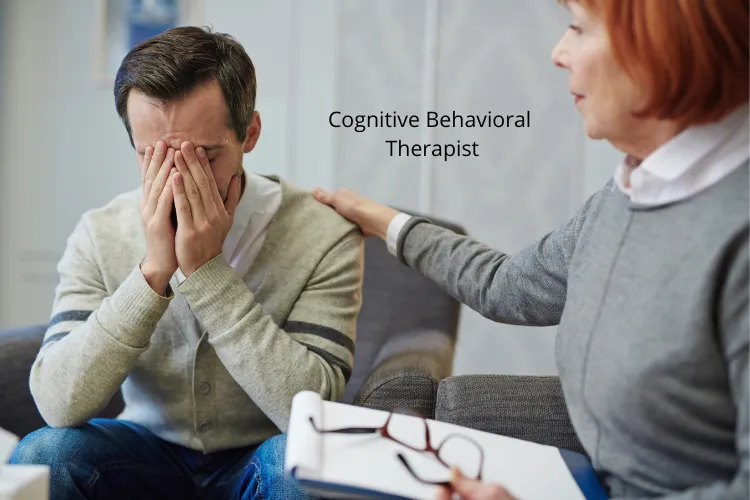A psychotherapy approach known as Cognitive Behavioural Therapy (CBT) teaches clients how to recognise and alter unhelpful or distressing thought patterns that have an adverse impact on their behaviour and emotions. The goal of Cognitive Behavioural Therapy is to alter the automatic negative ideas that cause and exacerbate emotional problems, sadness, and anxiety. The mood is negatively impacted by these uncontrollable unpleasant thoughts. These thoughts are recognised, contested, and replaced with more objective, realistic thoughts using Cognitive Behavioural Therapy (CBT).
Types of Cognitive Behavioural Therapy
CBT includes a variety of methods and procedures for addressing ideas, feelings, and actions. These can include everything from self-help books to organised psychotherapies. CBT is used in a variety of particular kinds of therapeutic strategies as well, such as:
- Cognitive Therapy’s main goal is to recognise and alter flawed or distorted thought patterns, emotional reactions, and behavioural patterns.
- Thoughts and actions are addressed in Dialectical Behaviour Therapy (DBT), which also uses techniques like emotional control and mindfulness.
- Multimodal Treatment contends that seven distinct but related modalities—behaviour, affect, sensation, imagery, cognition, interpersonal factors, and drug/biological considerations—must be addressed in order to effectively treat psychological problems.
- Identifying illogical beliefs, aggressively challenging these beliefs, and finally learning to recognise and alter these thought patterns are all part of Rational Emotive Behaviour Therapy (REBT).
Procedures of Cognitive Behavioural Therapy
CBT is focused on applying a variety of tactics to assist people to overcome negative thoughts, rather than just detecting thinking patterns. Journaling, role-playing, relaxation exercises, and mental diversion are a few approaches that can be used.
- Recognize Negative Thoughts
It’s critical to understand how conditions, attitudes, and beliefs can lead to unhelpful behaviour. The process can be challenging, especially for those who have trouble reflecting on their own behaviour, but it can ultimately result in self-discovery and insights that are crucial to the healing process.
- Learning New Abilities
It is crucial to begin using new abilities in scenarios that are relevant to your life. For instance, a person with a substance use disorder could begin exercising new coping mechanisms and learning how to avoid or handle social situations that might serve as a potential relapse trigger.
- Goal-Setting
Setting goals is an important part in getting well from mental illness and assisting in making adjustments to enhance life and health. A therapist can assist with goal-setting skills during CBT by instructing you on how to identify your goal, differentiate between short- and long-term goals, develop SMART goals (specific, measurable, achievable, relevant, time-based goals), and place more emphasis on the process than the final result.
- Problem-Solving
Learning problem-solving techniques can help you recognise and address issues brought on by both major and minor life stresses, as well as lessen the harmful effects of psychological and physical sickness.
Five steps are frequently used in CBT to solve problems:
- Recognising an Issue
- Making a list of potential answers
- Weighing the advantages and disadvantages of each potential fix
- Selecting a programme to use
- Putting the solution in place
Self-monitoring, also referred to as diary work, is a component of CBT that entails keeping track of behaviours, symptoms, or experiences over time and sharing them with your therapist. Self-monitoring can assist in giving your therapist the knowledge required to deliver the best care. For those dealing with eating disorders, keeping track of eating patterns as well as any thoughts or feelings that accompanied a meal or snack is one way to practise self-monitoring.
Effectiveness of Cognitive Behavioural Therapy
The development of CBT dates back to the 1960s and is rooted on the work of psychiatrist Aaron Beck, who recognised how particular ways of thinking contributed to emotional issues. These “Automatic Negative Ideas,” which Beck dubbed, are how cognitive therapy was created. The cognitive method investigated how thoughts and feelings affect behaviours, in contrast to past behaviour therapies that had solely concentrated on associations, reinforcing, and punishments to improve behaviour. A variety of mental illnesses, including anxiety, depression, eating disorders, insomnia, obsessive-compulsive disorder, panic disorder, post-traumatic stress disorder, and substance use disorder, have been successfully treated with Cognitive Behavioural Therapy, one of the most thoroughly researched treatment modalities available today.
The best evidence-based method of treating eating disorders is CBT. It has been shown to be beneficial for people with insomnia as well as those with a general medical condition that prevents them from falling asleep, such as those who suffer from pain or mood disorders like depression. Scientific research has shown that Cognitive Behavioural Therapy is useful in treating the signs and symptoms of anxiety and depression in children and adolescents. CBT assisted in reducing symptoms in persons with anxiety and anxiety-related illnesses, such as obsessive-compulsive disorder and post-traumatic stress disorder. CBT has a lot of scientific support for treating substance use disorders because it helps patients gain self-control, stay away from triggers, and create coping mechanisms for everyday stressors.
Get the help of a therapist at Ganeshaspeaks.com and address your issues at the earliest.



